Orienting the Disoriented:
A Craft Essay on Setting in Science Fiction
In Science Fiction setting can be defined by its list of tropes. You can be pretty sure something is a Sci-fi setting if it’s set in the future, different realities, other timelines, elsewhere in the galaxy, or uses nonexistent science and technology. No matter the background variation, the central requirement for the Science Fiction setting is that science or technology is a key aspect. –FreeSpacer
As a genre, Science Fiction is largely defined by setting. If I give you a story to read and tell you that it’s scifi, you know that we are probably not here; if we are here, we are probably not now; and if we are both here and now, things are about to get very weird, probably either because extraterrestrials are stopping by to visit or someone has just invented something that changes everything. The science and technology available to your characters will define what they do and how they do it. If your story could be set down the block at your friend Joe’s apartment, with existing technologies and no intervening aliens, you might want to reconsider calling it science fiction. Maybe it’s magical realism. Maybe it’s slipstream. But it isn’t science fiction unless it somehow takes the reader out of the here and now and transports her to a place where science and technology change what is possible
What does this mean to you as a writer? First, it means you have to be a lot better at this part of your craft than, say, the authors of Westerns or Historical Fiction. You can reasonably assume readers will understand the sentence, “Dakota rode the bay mare over the prairie, his bedroll and pack lashed to the back of the saddle and his gaze settled on the moon rising over the horizon.” But what if Dakota is instead riding a machine you’ve invented to take him across the icy plains of a distant planet, staring at a multi-colored sky that contains three moons? Well, now you have a little more explaining to do.
But here’s the rub; you also have to be certain not to explain too much. What does your reader need to know about the setting of your story in order to understand the actions of the characters, and what details can you leave out? We’ve all read bad scifi that’s overburdened with world building. Imagine that I rewrote our sentence about Dakota this way; “Dakota rode the new model of the SF-3461 Alien Terrain Vehicle across the orange-tinted, sulfur-rich ice plains of Seraphim, the fifth planet in the Augustinian solar system; his extra pressure suit with the shatter-proof glass helmet and oxygen-recycling system stowed along with his seismic activity recorder and gas chromatograph in the rear compartment, his eyes on the two moons and one man-made satellite visible just over the horizon.” Let me guess. You don’t want to read the rest of that story, do you? That’s okay, I promise not to write it.
When I write science fiction, though, it often starts off very much like that; full of details that the reader doesn’t need but that I, as the writer, do… at least until I am done with the first draft. In fact, I want more detail. I want to know if he has emergency rations and a canteen, how the vehicle is powered, the names of the moons, and the origin and purpose of the moon-sized artificial satellite visible in the evening sky. Many writers start scifi projects by world-building; because I deal almost exclusively in short-form, though, I tend simply to write in all sorts of ancillary details and then simply remove the unnecessary ones during the editing process. Does Dakota ever use that extra pressure suit? If not, out it comes. Does he get meaningful results from his gas chromatograph or does the type of equipment he carries give us insight into his reason for being on the planet in the first place? If so, those details stay. And on and on.
My finished stories often end up being less than a third as long as the first draft. The rich details that are the hallmark of good science fiction novels—or series of novels—simply don’t work in short form writing; they slow the pace and the work the reader has to do seldom pays off in a short story arc.

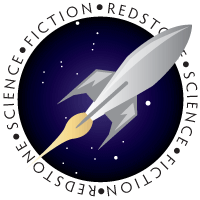
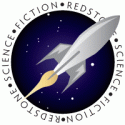



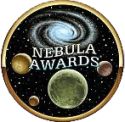
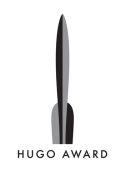
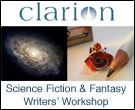



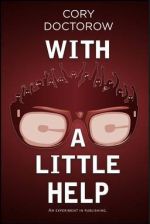
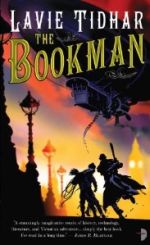
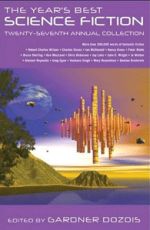


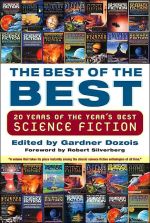
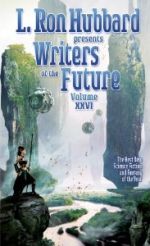

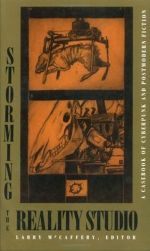



6 comments
[…] Orienting the Disoriented: Setting in Science Fiction by Sarah Einstein […]
Thought-provoking essay, Sarah. Oddly, I actually liked that example of a bad beginning. I would’ve read on, wanted to read on. Might be my tastes having been perverted by writers like D. F. Wallace (“Infinite Jest” is perhaps my favorite sci-fi ever) whose copious and persistent detail and specifics and even mountainous undigested research add credibility not present in run-of-the-mill fiction which I find ever harder to suspend belief now in reading. Or maybe it being (like you say) the sort of writing that appeals to the author, now appeals most to me as reader, I too needing that sort of resolution to get involved. There was also a geeky voice to it that attracted me.
Christopher,
Nice of you to say, but your story is such an amazing example of how setting–deployed correctly–is what creates the uncanny in scifi and makes it so compelling. I love the long arc of history punctuated with the usually unknowable biographies of the audience members. It creates such a haunted feel to the piece. The story is so great because it is so rich, and all of the details create the tension in the piece. The historical rendered to closely that the predictive seems more than plausible. Wow.
[…] Orienting the Disoriented: Setting in Science Fiction by Sarah Einstein. […]
[…] Orienting the Disoriented: Setting in Science Fiction by Sarah Einstein. […]
What’s the name of the story mentioned above? It sounds interesting.